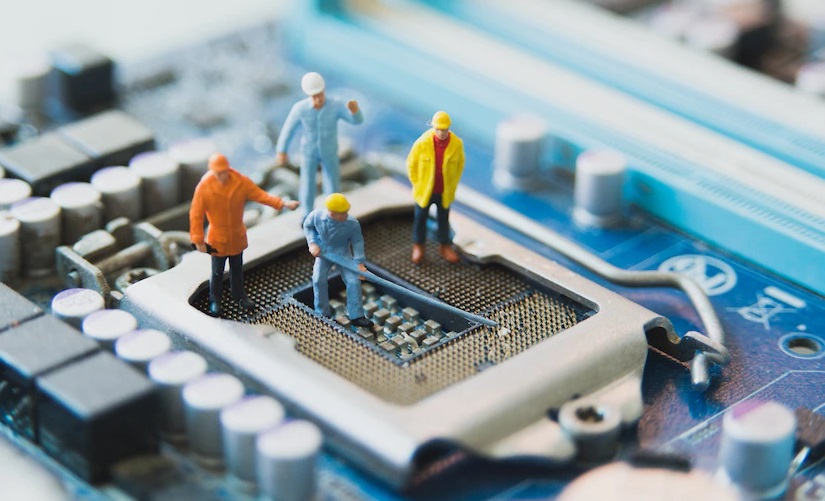A CPU cooler is an essential component of any computer system, as it helps to dissipate the heat generated by the central processing unit (CPU). Without proper cooling, the CPU can become overheated, leading to system crashes, data loss, and even permanent damage. Regular maintenance of your CPU cooler is crucial to ensure its continued operation and to prolong the life of your computer. In this article, we will discuss the importance of regular maintenance for your CPU cooler and the best CPU coolers available on the market today.
Why Regular Maintenance is Important
One of the main reasons to perform regular maintenance on your CPU cooler is to ensure that it is functioning properly. Over time, dust and other particles can accumulate on the fins of the cooler, reducing its ability to dissipate heat. This can lead to increased temperatures and the potential for damage to the CPU. By regularly cleaning the cooler, you can ensure that it is working at its best, keeping your CPU cool and running smoothly.
Another important reason to perform regular maintenance on your CPU cooler is to prolong the life of your computer. Without proper cooling, the CPU can become damaged, leading to costly repairs or even the need to replace the entire system. By keeping your cooler clean and functioning properly, you can help to extend the life of your computer and avoid costly repairs.
The Best CPU Coolers
When it comes to finding the best CPU coolers, there are several options available on the market. Some of the top choices include:
Air coolers: Air coolers use a fan to move air over the fins of the cooler, dissipating heat. These types of coolers are generally less expensive than liquid coolers and are easy to install. However, it should be noted that air coolers may not be as effective as liquid coolers in dissipating heat, especially for high-performance CPUs that generate a lot of heat.
Liquid coolers: Liquid coolers use a liquid coolant to dissipate heat from the CPU. These types of coolers are generally more effective than air coolers, but they are also more expensive and can be more difficult to install. They are ideal for high-performance CPUs that generate a lot of heat and require more effective cooling solutions.
Hybrid coolers: Hybrid coolers combine the best of both air and liquid cooling, using a liquid coolant in conjunction with a fan to dissipate heat. These types of coolers are generally more effective than air coolers and are less expensive than liquid coolers. They offer a good balance between cost and performance and are ideal for those who want the benefits of liquid cooling without the added expense.
When choosing the best CPU coolers, it is important to consider your needs and budget. If you are using a high-performance CPU that generates a lot of heat, a liquid cooler or a hybrid cooler may be a better choice than an air cooler. On the other hand, if you are on a budget and want an easy-to-install cooling solution, an air cooler may be the best choice for you.
Another factor to consider when choosing a CPU cooler is the noise level. Some coolers, especially air coolers, can generate a significant amount of noise, which can be a distraction while using your computer. If you are looking for a quiet cooling solution, a liquid cooler or a hybrid cooler may be a better choice, as they generally generate less noise.
When it comes to maintaining your CPU cooler, it is important to regularly check the condition of the cooler and to clean it as necessary. This can be done by removing the cooler from your computer and cleaning the fins with a soft brush or compressed air. If you are using a liquid cooler, it is also important to check the coolant level and to replace the coolant as necessary. The coolant in liquid coolers can become contaminated over time and may lose its ability to dissipate heat effectively, which is why regular maintenance is important.
Another important aspect of maintaining your CPU cooler is to ensure that it is properly installed. This includes making sure that the cooler is securely attached to the CPU and that the thermal paste is applied correctly. Improper installation can lead to increased temperatures and the potential for damage to the CPU. It is recommended to refer to the instructions provided by the manufacturer while installing the cooler, to ensure that it is done correctly.
In addition to regular maintenance and proper installation, there are other steps that you can take to help keep your CPU cool. One of these is to make sure that your computer has adequate ventilation. This means keeping the vents on your computer clean and free from dust and debris, and making sure that there is enough airflow around the computer to help dissipate heat. Dust and debris can accumulate in the vents, blocking the airflow and making it harder for the CPU cooler to dissipate heat effectively.
Another step that you can take to help keep your CPU cool is to use a computer monitoring program. These programs can help you to monitor the temperature of your CPU and other components and can alert you if the temperature starts to get too high. This can be especially useful if you are using a high-performance CPU or if you are overclocking your computer. By monitoring the temperature of your CPU, you can ensure that it is running at the optimal temperature and take steps to cool it down if necessary.
It is also important to note that the environment in which your computer is located can also affect the temperature of your CPU. If your computer is located in an area with poor ventilation or high temperatures, it may be more difficult for the CPU cooler to dissipate heat effectively. In such cases, it may be necessary to take additional steps to keep your computer cool, such as installing additional fans or moving the computer to a cooler location.
Conclusion
Regular maintenance of your CPU cooler is crucial to ensure its continued operation and prolong the life of your computer. When choosing the best CPU coolers, it is important to consider your needs and budget, as well as the performance and noise level of the cooler. Additionally, it is important to regularly check the condition of the cooler and to clean it as necessary, as well as ensure that it is properly installed. Other steps that you can take to help keep your CPU cool include ensuring adequate ventilation, using a computer monitoring program, and taking into consideration the environment in which your computer is located. By taking these steps and properly maintaining your CPU cooler, you can help to keep your computer running smoothly and avoid costly repairs.










